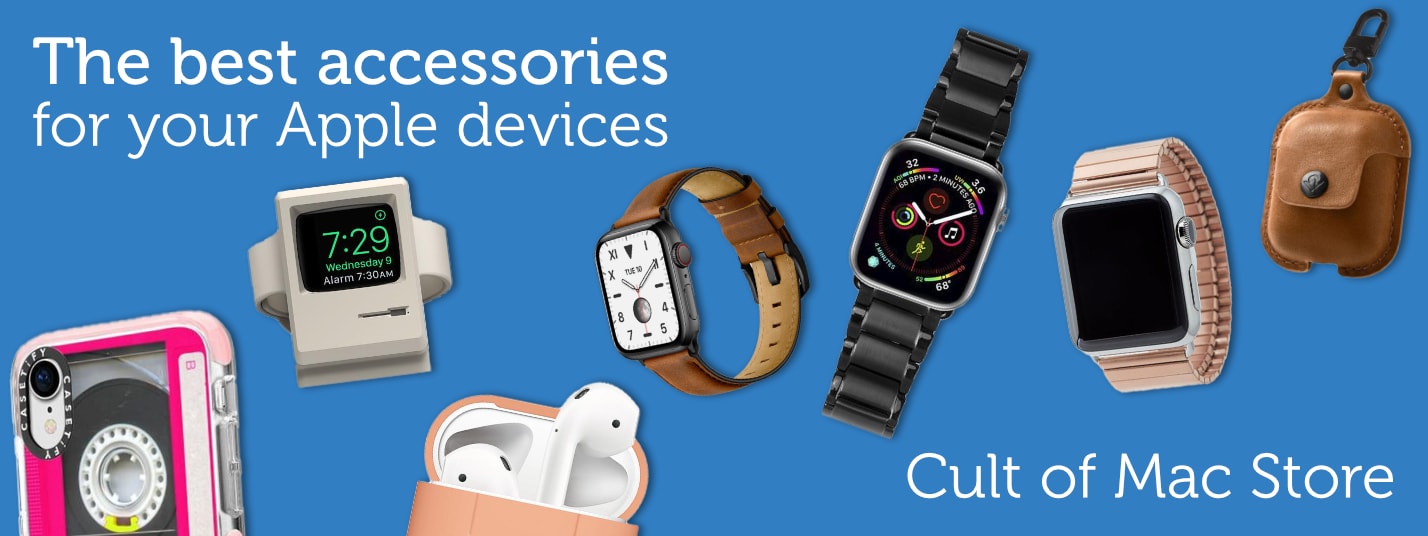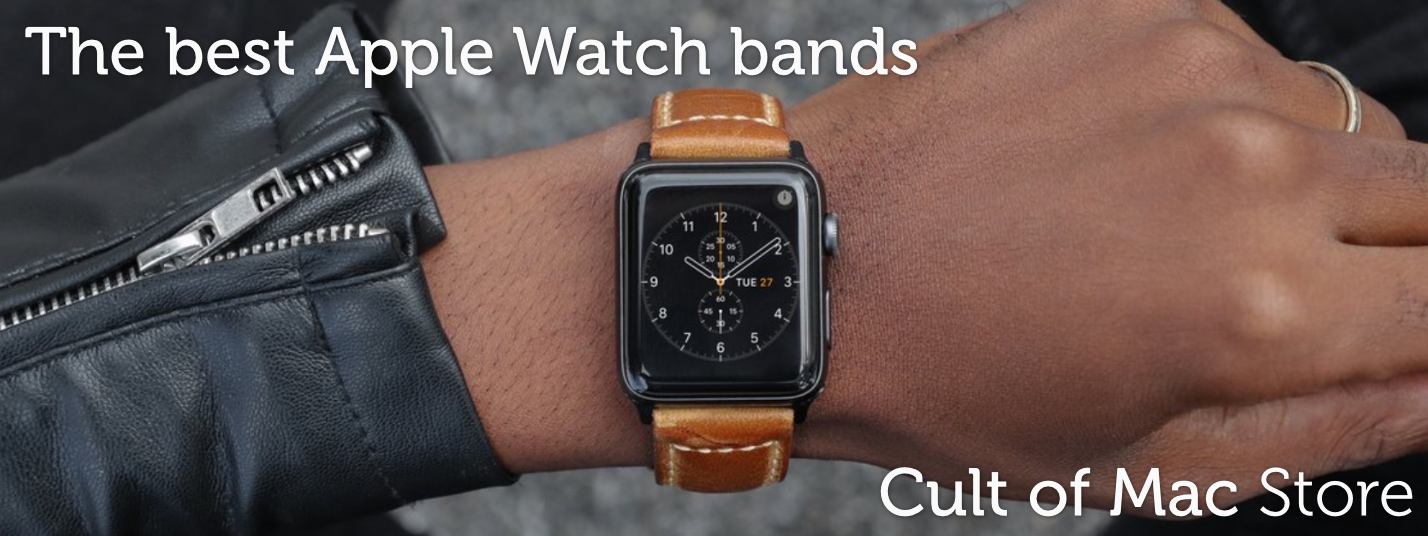-
Make music like a pro with the best audio interfaces for Mac
Make music like a pro with the best audio interfaces for Mac
By David Snow · April 16, 2024For great sound quality in your audio recordings, you need the best audio interface for Mac. We'll help you find the right one. more...
-
Sketchy report says base iPhone 16 Pro storage will double
By Ed Hardy · April 16, 2024 -
Apple could finally fix iPhone’s longstanding camera flare problem
By Rajesh Pandey · April 15, 2024 -
Big curved Dell 4K display serves MacBook duo [Setups]
By David Snow · April 15, 2024 -
5 essential Mac settings you should change
By Rajesh Pandey · April 13, 2024
Latest Posts
-
- News
Apple TV+ brings huge Hollywood scam to the screen
By David Snow · April 15, 2024 -
- News
iPhone shipments take a surprise nosedive
By Ed Hardy · April 15, 2024 -
- News
Apple M4 chips and the rise of AI everything [The CultCast]
By Lewis Wallace · April 13, 2024 -
- Daily Deals
Delete junk files and free up space on your Mac with MacCleanse
By Cult of Mac Deals · April 13, 2024
-
Nab Apple Watch SE 2 for up to $60 off on Amazon
-
Goodbye Leather Apple ad raises questions about FineWoven iPhone cases
-
Silo star drops major hints about sci-fi hit’s future on Apple TV+
-
Inkless pocket printer can print out photos, notes and more for less than $70
-
Let AI write your perfect resume with this $35 job-hunting tool
-
Grab a great deal on M1 iMac while you can
-
Snag a refurbished iPad Pro for just $160
-
First iPhone Game Boy emulator quickly disappears from App Store
-
Rode’s new wireless mic and MagSafe mounts elevate iPhone videography
-
Today in Apple history: Apple scrambles to fix doomed Apple III
Popular Now
-
Anker’s new power bank moonlights as wall charger
-
5 essential Mac settings you should change
-
Big curved Dell 4K display serves MacBook duo [Setups]
-
Colin Farrell’s gritty detective series Sugar becomes an immediate hit
-
Apple could finally fix iPhone’s longstanding camera flare problem
-
Apple TV+ brings huge Hollywood scam to the screen
-
Snag a refurbished iPad Pro for just $160 [Deals]
-
Today in Apple history: Apple co-founder quits and cashes in his stake for $800
-
First iPhone Game Boy emulator quickly disappears from App Store
How-Tos and Tips
-
- How-To
How to quickly queue songs on Apple Music (and clear the queue)
By D. Griffin Jones · April 11, 2024 -
- How-To
How to scan QR codes on iPhone
By D. Griffin Jones · April 8, 2024 -
- How-To
Share passwords with your family on iPhone
By D. Griffin Jones · April 3, 2024 -
- How-To
How to tweak your iPhone’s Home Screen
By Rajesh Pandey · March 26, 2024 -
- How-To
Crank up Safari’s privacy to the max
By D. Griffin Jones · March 20, 2024 -
- How-To
These are the best and coolest Apple Watch faces
By D. Griffin Jones · March 16, 2024
Cult of Mac Giveaways
Win a rugged and waterproof Apple Watch sport band
Got an Apple Watch? Then you should enter our giveaway to win a tough-but-beautiful Lululook Waterproof FKM Sport Band. >>>
Setups
-
- setups
Big curved Dell 4K display serves MacBook duo
By David Snow · April 15, 2024 -
- setups
You wish you had this MacBook workstation’s killer keyboard
By David Snow · April 12, 2024 -
- setups
Dual-display rig boasts speedy M3 and M2 MacBooks
By David Snow · April 10, 2024
Latest Videos
- Cult of Mac Videos
-
The Best Games on Apple Arcade
The Best Games on Apple Arcade
-
What to Expect at Apple WWDC 24: AI Takes Center Stage?
What to Expect at Apple WWDC 24: AI Takes Center Stage?
-
7 Reasons the Apple TV is Better than Roku
7 Reasons the Apple TV is Better than Roku
-
Should You Buy a Desktop Mac or a MacBook?
Should You Buy a Desktop Mac or a MacBook?
-
Apple Watch Face TIER LIST
Apple Watch Face TIER LIST
Today in Apple History
- History
Cupertino fires back after Microsoft’s ‘Apple tax’ ads
On April 16, 2009, Apple hit back following a Microsoft ad that criticized Cupertino for failing to sell decent laptops for less than $1,000. >>>
Latest Apple TV+
- Apple TV+
Can dimension-shifting Constellation nail its season finale?
On the Apple TV+ sci-fi show, you should never believe what you think is reality. Will "Constellation" season finale wrap up its loose ends? >>>
Daily Deals
-
- Daily Deals
Nab Apple Watch SE 2 for up to $60 off on Amazon
By David Snow · April 16, 2024 -
- Daily Deals
Inkless pocket printer can print out photos, notes and more for less than $70
By Cult of Mac Deals · April 16, 2024 -
- Daily Deals
Let AI write your perfect resume with this $35 job-hunting tool
By Cult of Mac Deals · April 15, 2024 -
- Daily Deals
Grab a great deal on M1 iMac while you can
By David Snow · April 15, 2024 -
- Daily Deals
Snag a refurbished iPad Pro for just $160
By Cult of Mac Deals · April 15, 2024 -
- Daily Deals
Forget pricey piano lessons. Learn to play at home with this AI-powered app.
By Cult of Mac Deals · April 14, 2024
Reviews and Recommendations
-
- reviews
Belkin iPhone stand cleverly keeps camera focused on you
By Ed Hardy · April 8, 2024 -
- reviews
These are the best games on Apple Arcade
By D. Griffin Jones · April 6, 2024 -
- reviews
A good chair for your setup doesn’t have to break the bank
By David Snow · April 4, 2024 -
- reviews
Best external SSDs for Mac or iPad in 2024
By Ed Hardy · March 31, 2024 -
- reviews
7 reasons to get an Apple TV instead of a Roku
By D. Griffin Jones · March 30, 2024 -
- reviews
Baseus laptop power bank proves that thin is in
By Ed Hardy · March 25, 2024
Newsletters
Daily round-ups or a weekly refresher, straight from Cult of Mac to your inbox.
-

The Weekender
The week's best Apple news, reviews and how-tos from Cult of Mac, every Saturday morning.
Our readers say:
"Always posting cool stuff" -- Vaughn Nevins.
"Very informative" -- Kenly Xavier.




